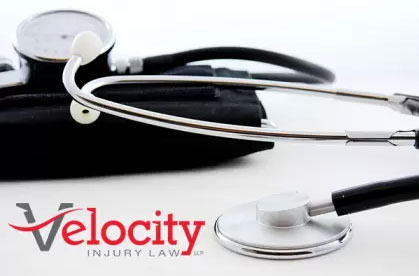Medical, Rehabilitation and Attendant Care Benefits

Posted on March 27, 2017

If you are hurt in an automobile accident you are entitled to request the payment of certain benefits from your own automobile insurance company, whether or not you were at fault for the accident. These benefits are called Statutory Accident Benefits, or “SABs” for short. They are also commonly referred to as “no-fault” benefits because their payment does not depend on who was at fault for the accident.
This blog specifically addresses medical, rehabilitation, and attendant care benefits.
Medical benefits cover accident-related expenses for:
- physiotherapy;
- chiropractic therapy;
- psychological therapy;
- hospital stays;
- wheelchairs or other mobility devices;
- prosthetics;
- medication;
- transportation to and from medical treatments; and
- other similar services.
Rehabilitation benefits are intended to pay for certain activities that reduce or eliminate the effects of your accident-caused disability or that help you reintegrate into your family, society, and the workforce. Such activities include, but are not limited to:
- life skills training;
- social rehabilitation counselling;
- financial counselling;
- employment counselling;
- vocational assessment; and
- workplace, home, and vehicle accommodations and modifications.
Attendant care benefits pay for accident-related costs of services provided to you by an aide or attendant; a long-term care facility; a long-term care home; or a chronic care hospital. In some circumstances, a family member can qualify as an attendant.
Are benefits guaranteed?
Importantly, even though you can receive medical, rehabilitation, and attendant care benefits regardless of who caused the accident, you do not automatically receive these benefits. Your insurance company will only pay for what it considers “reasonable and necessary” expenses. Sometimes your insurance company will readily agree to pay you benefits, and other times it will refuse to pay. Your lawyer can help you dispute an improper denial of benefits.
How much money is available?
The amount of money that your insurance company will pay in benefits is “capped” at different amounts, depending on the type of injury you suffered in the accident.
“Catastrophic Impairment”
If you have suffered a “catastrophic impairment” as a result of the accident the maximum amount your insurance company will pay for all medical, rehabilitation, and attendant care benefits combined is $1,000,000.00, with no time limit.
The definition of “catastrophic impairment” is complicated. Examples of “catastrophic impairment” are paraplegia; some types of amputation; loss of vision in both eyes; and certain types of brain injury. A description of what qualifies as a “catastrophic impairment” is found at section 3.1 of the Statutory Accident Benefits Schedule, an Ontario statute that governs eligibility for and payment of SABs.
“Non-Catastrophic Impairment”
For non-catastrophic injuries the maximum amount your insurance company will pay for all medical, rehabilitation, and attendant care benefits combined is $65,000.00 and only over a maximum of 5 years. Whether the $65,000.00 is used up before the 5-year deadline, or money is left over at the 5-year mark, no further benefits are payable. If the injured person is a minor (i.e. under the age of 18), there is still a $65,000.00 monetary limit, but the benefits can be paid up until the injured person’s 28th birthday.
“Minor Injury”
If your injury is classified as a “minor injury” your insurance company is only required to pay a maximum of $3,500.00 for medical and rehabilitation benefits combined. You are not entitled to attendant care benefits if your injury is classified as a “minor injury”. The definition of “minor injury” is found at section 3 of the Statutory Accident Benefits Schedule.
What can you do to increase your coverage?
To avoid having the above-noted maximum payable benefits apply to you, you have the opportunity to purchase “optional benefits” through your broker or insurance company. Optional benefits provide increased coverage and are described at section 28 of the Statutory Accident Benefits Schedule.
Optional benefits can significantly increase the maximum amounts payable in medical, rehabilitation, and attendant care benefits, and can increase the time period over which the insurance company would be required to pay the benefits.
In most cases, someone with a good driver’s history can purchase optional benefits (and peace of mind) at relatively low cost. But keep in mind: Just because you have paid for the benefits does not mean that your insurance company will agree to pay them. If you are having trouble with your insurance company, speak with a lawyer.
This article is not a substitute for legal advice. If you have any questions, please contact us at 519-946-4300.

In The Community

The lawyers and staff of Velocity Injury Law can often be found out in the community. Whether we are volunteering for charitable organizations, serving as members of local boards, or participating in recreational and fundraising events, we enjoy being actively involved in and giving back to our community.
Read Our News
 Do You Have A Case?
Do You Have A Case?

